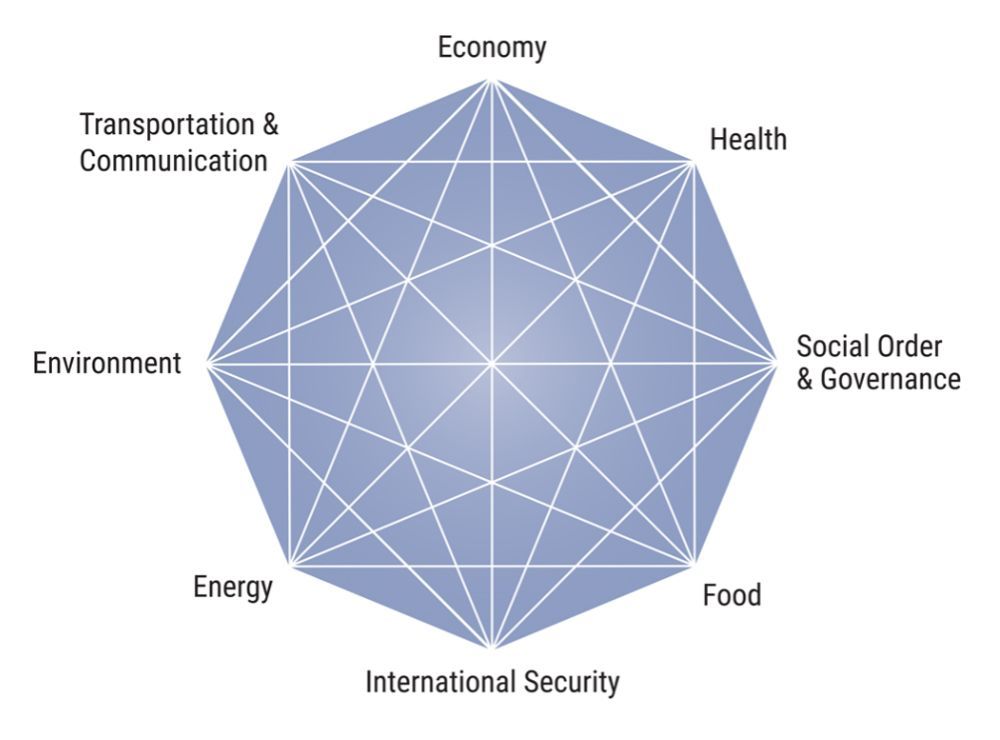About
A Neuroscientific Approach To Leadership, Team, & Organization Transformation
What tigers are chasing you - personally, in your closest team, or the organization you work for? None of us are being chased by saber-toothed tigers anymore, but try telling that to your neocortex. Stress is a natural part of life and change, personally and organizationally, but when eustress tips over into prolonged periods of stress, overwhelm and distress, it can become problematic for our personal wellbeing, and in accessing the generative and collaborative parts of the brain required to creatively and adaptively respond to our biggest challenges.
The
Polycrisis
In today’s world we have one particular tiger chasing us all, whether we know it or not - our
global polycrisis. For some, this is old news. For others it may be a new term. You only have to switch on the news to see aspects of it reported every day. But unless you have a background in complex systems theory or sustainable development, you’d be forgiven for not knowing the name of this particular tiger that’s chasing us all.
Whatever your personal, team or organizational tigers are, they are all happening in a broader context. If you work in any of the sectors above, you will know only too well the challenges and opportunities that lie ahead and that you navigate every day in pursuit of positive change and transformation. Even if you don’t work in any of the above sectors, we are all still affected by them – food, energy and transport prices; economic instability; healthcare availability; crime, national security, and global conflict; and our environmental crisis.
The temperature is rising for us all – literally. And given global mental health trends, our collective nervous system knows it. Overwhelm and burnout are on the rise.

Developing The Capacities For Innovation, Transformation & Flourishing
So what to do? How do we build the personal, team and organizational capacities to enable sustainable performance, learning agility, innovation, growth, transformation and flourishing in the midst of our polycrisis?
Unfortunately the relationship between stress and empathy is well known – when stress goes up, empathy goes down. We may notice this particular dynamic playing out in the world around us – in global news reports, but also more immediately in our closest personal relationships, and at work. Either way, this dynamic works against extraordinary human connection, collaboration and innovation.


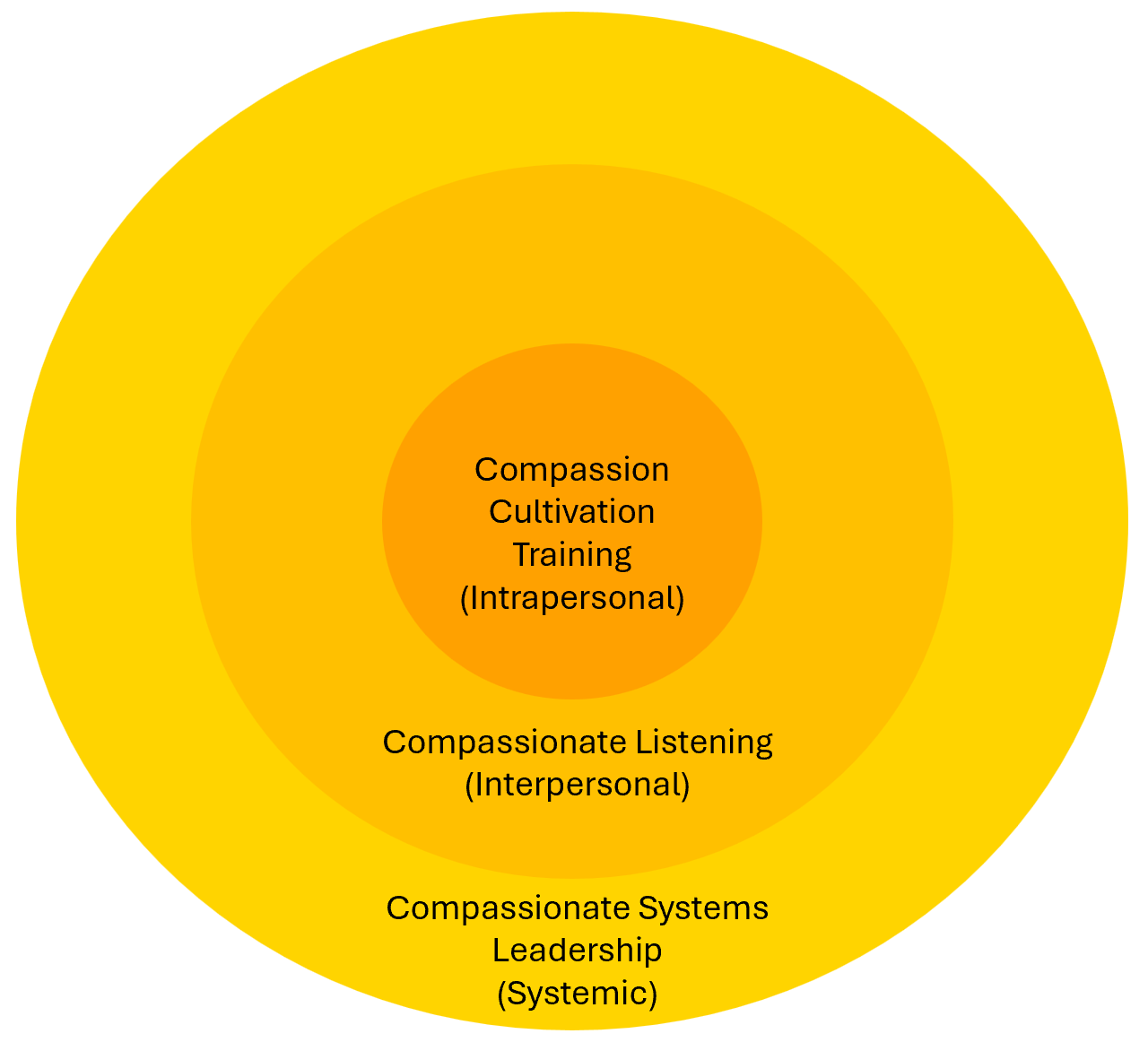
Compassionate Leadership
Fortunately compassion is a natural human capacity that anyone can cultivate and grow in a way that supports wellbeing and high functioning in individuals, teams, and organizations. At its simplest compassion can be described as empathy + action. It’s a highly empowered and empowering state that unlocks transformation and flourishing in ourselves and others. Fundamental to compassionate leadership is compassionate listening - the capacity to attune to others with a view to reducing their stress and suffering, and enabling empowered action.

The Compassionate Leader is a home and community for leaders, teams, organizations and change agents committed to the practices of compassionate leadership and psychological safety to enable accelerated learning, growth and flourishing in the midst of the polycrisis. We develop leaders in the fundamentals of Compassionate Leadership – Compassionate Systems Leadership, Compassionate Listening, and most important of all, Compassion Cultivation Training (CCT). We train leaders ‘from the inside out’ with powerful inner practices that bring about tangible neurobiological changes that ripple out to the teams and organizations they lead.
Psychological Safety
CCT, Compassionate Listening, and Compassionate Systems Leadership create the conditions for psychological safety within teams and organizations neurobiologically. And, having helped Microsoft scale psychological safety across its Western Europe business, we also train leaders and teams in the practices of psychological safety. We have partnered with Amy Edmondson’s Fearless Organization since its inception to guide powerful discovery sessions on the Fearless Organization Scan (FOS) and to measure the impact of our interventions on team and organization effectiveness.
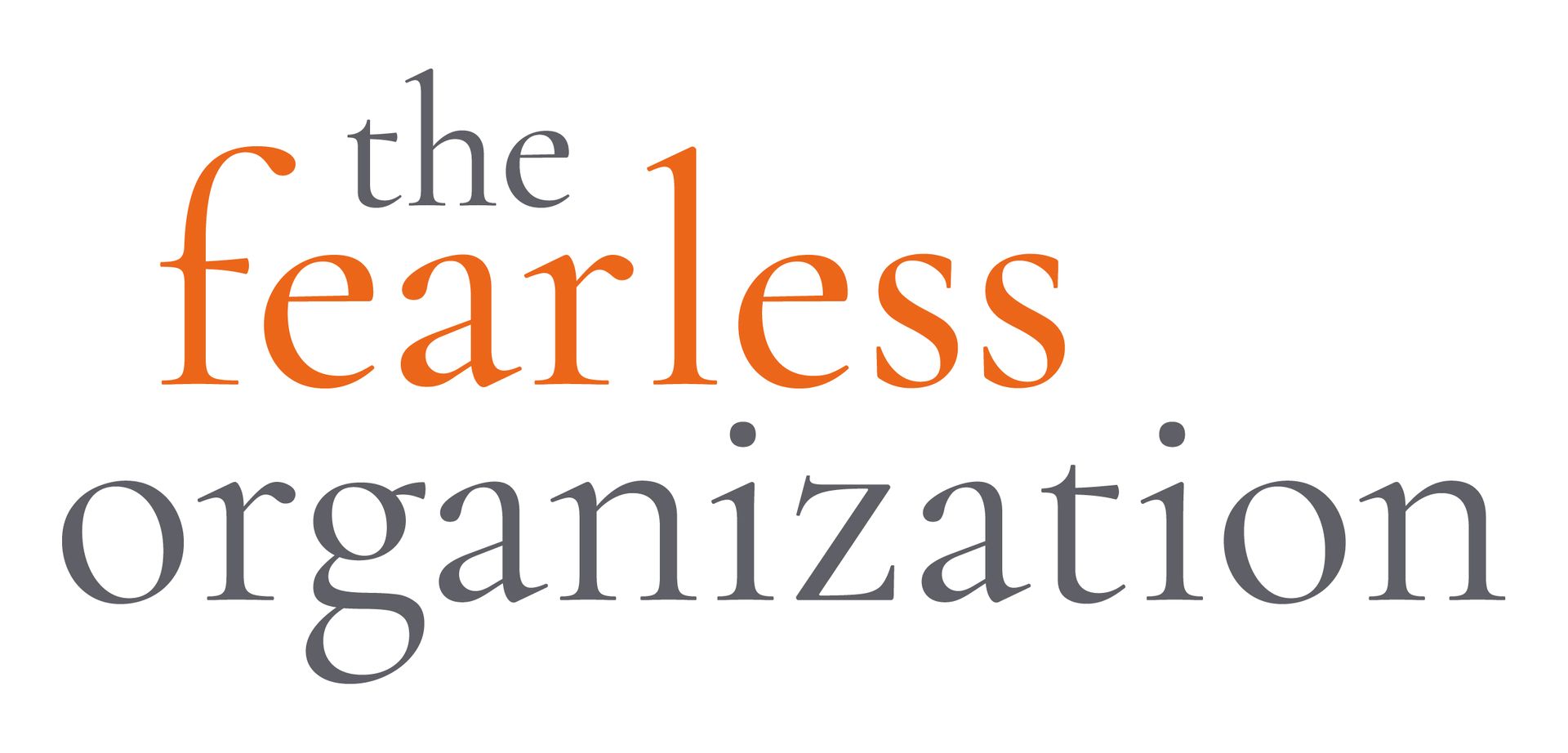
Fortunately compassion is a natural human capacity that anyone can cultivate and grow in a way that supports wellbeing and high functioning in individuals, teams, and organizations. At its simplest compassion can be described as empathy + action. It’s a highly empowered and empowering state that unlocks transformation and flourishing in ourselves and others. Fundamental to compassionate leadership is compassionate listening - the capacity to attune to others with a view to reducing their stress and suffering, and enabling empowered action.
The Compassionate Leader is a home and community for leaders, teams, organizations and change agents committed to the practices of compassionate leadership and psychological safety to enable accelerated learning, growth and flourishing in the midst of the polycrisis. We develop leaders in the fundamentals of Compassionate Leadership – Compassionate Systems Leadership, Compassionate Listening, and most important of all, Compassion Cultivation Training (CCT). We train leaders ‘from the inside out’ with powerful inner practices that bring about tangible neurobiological changes that ripple out to the teams and organizations they lead.

Deliberately Developmental Organization
Compassionate Leadership and Psychological Safety are simply enablers of something else at a systemic level. Whether we call it a Learning Organization or Deliberately Developmental Organization, the fundamental principle remains the same – organizations that learn and innovate faster than their competitors, enabling growth, transformation, and flourishing.
In our consulting work we use the term Deliberately Developmental Organization for three main reasons:
- A recognition of stages of adult / ego development, sometimes referred to ‘vertical’ development, and its relationship to transformational change
- The application of this to organization development that comes from Frederic Laloux’s seminal work 'Reinventing Organizations'
- Perhaps most importantly, the pragmatism of operationalizing leadership, team and organization development through powerful practice-based experiential learning

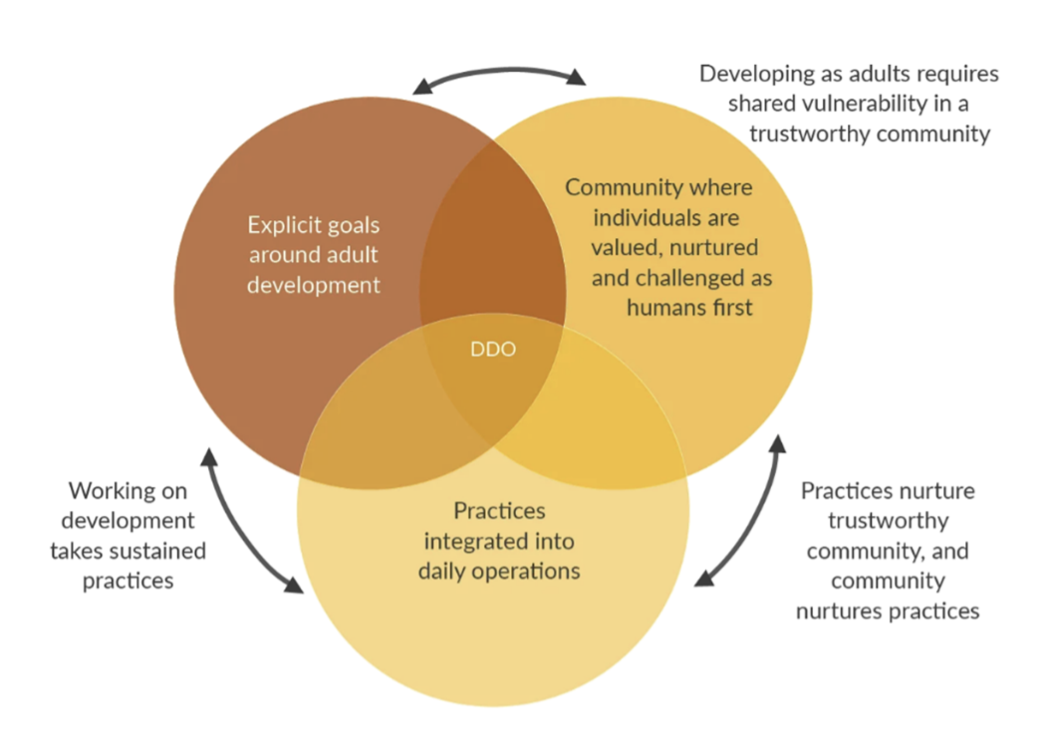
Practice-Based Leadership, Team & Organization Development
The practices of compassionate leadership and psychological safety provide a framework and reliable method for extraordinary collaboration, innovation, growth and accelerated learning.
Transformation & Learning
Since its inception in 2019 The Compassionate Leader has facilitated and enabled three major transformation programs:
Coaching Through Covid – a compassionate coaching response for doctors and nurses in ICUs and others in the frontline of the pandemic – impacting the lives of over 650 frontline workers and the resulting ripple out to their patients, families, friends and colleagues.
Caerus Change – equipping over 400 practitioners in EMEA to use the Fearless Organization Scan and helping Microsoft scale psychological safety across its Western Europe business –
read the Harvard Business School case study here
Key UK Government defence organization – a four-year program scaling and embedding psychological safety across the organization. Enabling inherently dangerous work to be carried out with greater psychological safety.

Our Purpose: The UN’s Sustainable Development Goals (SDGs)
If you knew that psychological safety enabled teams and organizations to perform better on almost any metric or KPI. And if you knew that compassionate leadership enabled psychological safety, and empowered, agile action . And if you knew that both were key in creating Deliberately Developmental Organizations that learn and innovate faster. And if you knew how to operationalize this in teams and organizations through simple, yet powerful developmental practices - how would you spend your time?
All organizations can benefit from this approach, but living in the age of the polycrisis, the biggest priority seems to be putting this working knowledge in the hands of leaders, teams and change agents working directly on our biggest global challenges. For this reason The Compassionate Leader partners with the Inner Development Goals (IDG) and works with purpose driven organizations seeking to leave the world better than they found it. We particularly welcome interest from the health and care sector, those working on climate change, and B Corp members.
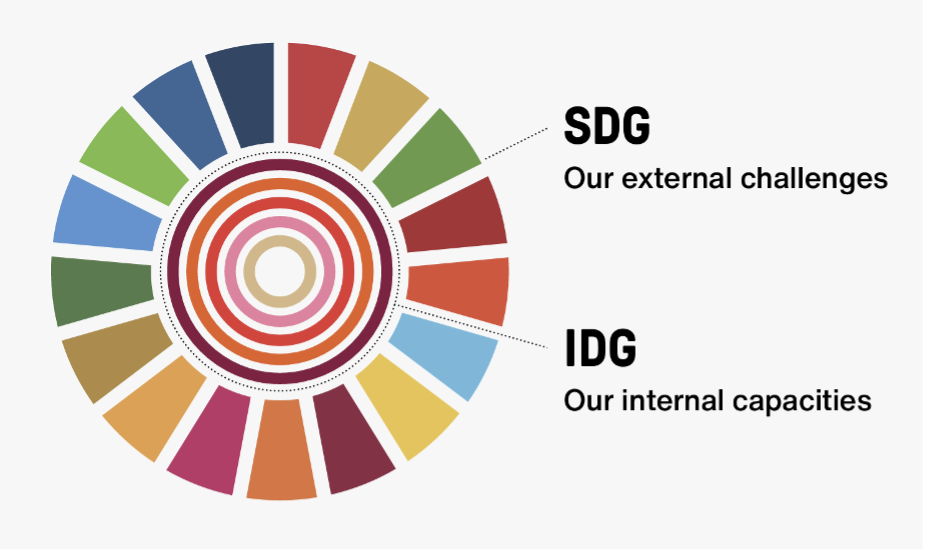
Sustainable Development Goals
If we are to make more meaningful progress toward the UN’s Sustainable Development Goals (SDGs) perhaps its not too much of a revelation to realise that we will need more compassion. This is not a philosophical statement – it’s neurobiological. Fortunately, compassion is a natural human quality that arises in the presence of suffering, so as our global polycrisis intensifies, equipping compassionate leaders to create psychologically safe teams and organizations that learn, innovate and grow faster will be key.
Nobody comes up with a good idea when being chased by a tiger. So if we want to create the conditions for great ideas in response to our global polycrisis we need a new model for leadership, team, and organization transformation.

Inspiration
The Compassionate Leader was inspired by vows taken with two extraordinary human beings many years ago.
Both are concrete examples of a different kind of leadership. The kind of leadership that our world very much needs today to create a better, safer, more sustainable future. Fortunately, contemplative neuroscience now better understands the impact of certain mental training in supporting flourishing at an individual and societal level.
Compassionate leadership is something we can all aspire and move towards. It’s a core part of our DNA as human beings – a natural state, and something we can all access given the right conditions. And importantly, it’s something that can be practiced and cultivated through mental training – much like going to the gym. And when we do, it creates the conditions for us and those around us to flourish and thrive. The practice of Compassionate Leadership is about creating the conditions for growth and flourishing – our own, others and the world around us.

"A new type of thinking is essential if mankind is to survive and move forward toward higher levels. A human being is part of the whole, called by us ‘universe,’ a part limited in time and space. He experiences himself, his thoughts and feelings, as something separate from the rest—a kind of optical delusion of consciousness. This delusion is a kind of prison for us, restricting us to our personal desires and to affection for a few persons nearest to us. Our task must be to free ourselves from this prison by widening our circle of compassion to embrace all living creatures and the whole of nature in its beauty."
Albert Einstein
Leading Culture Change at Microsoft Western Europe
Harvard Business School Case Study
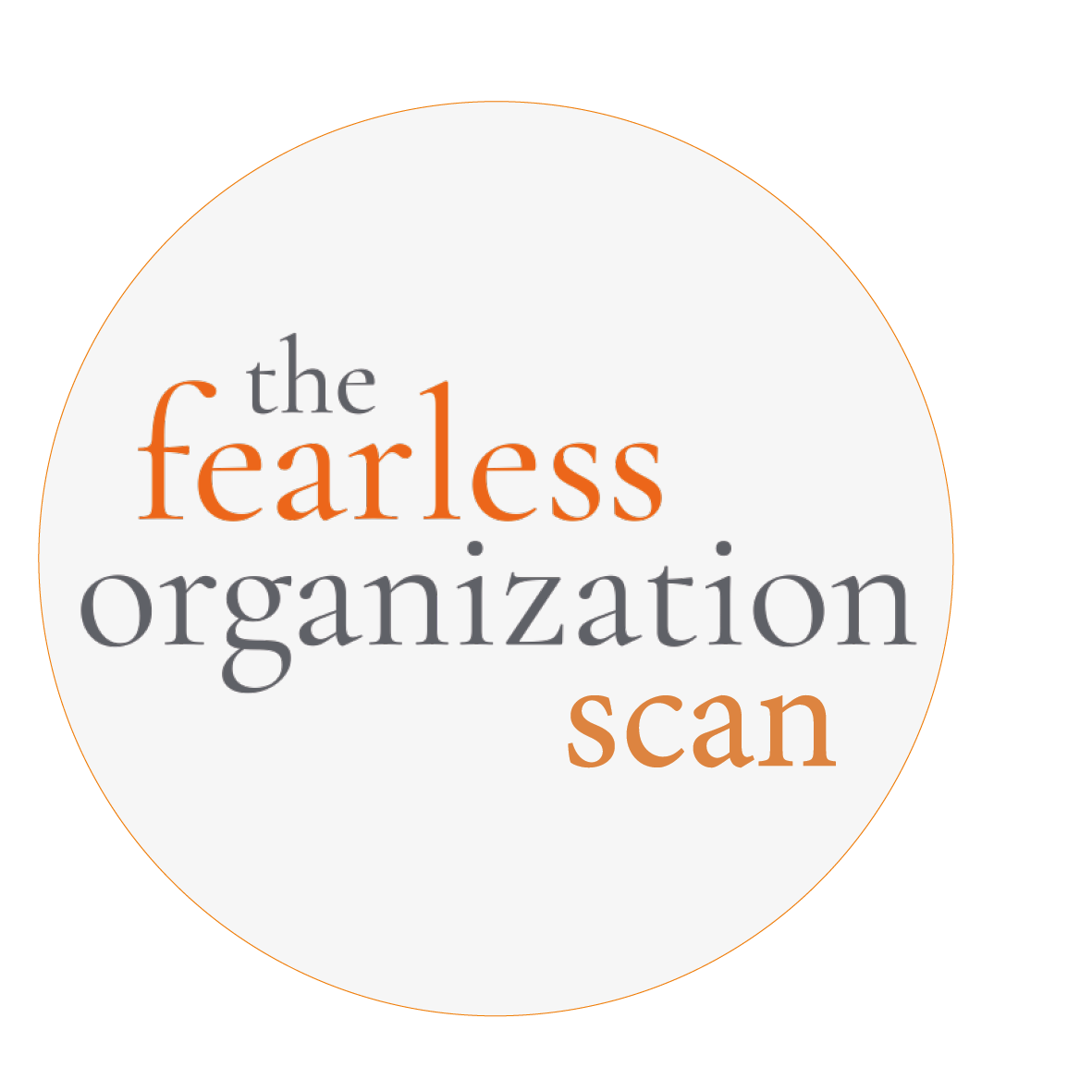
The Fearless Organization Scan Intact Team Debrief


